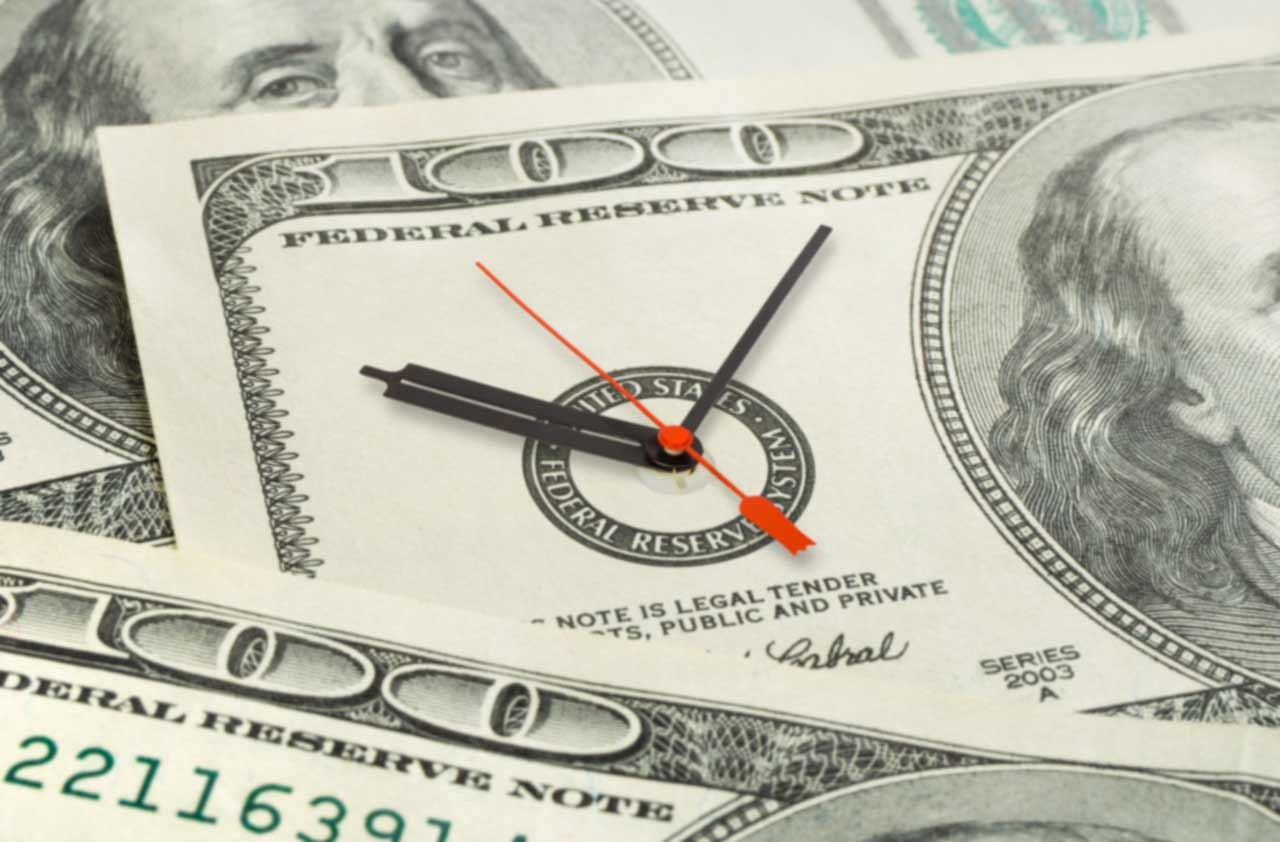Roth IRA: Convert Now or Pay Later?
Why the tax-code change should put a hurry-up on your decision to convert a traditional IRA into a Roth.


Profit and prosper with the best of Kiplinger's advice on investing, taxes, retirement, personal finance and much more. Delivered daily. Enter your email in the box and click Sign Me Up.
You are now subscribed
Your newsletter sign-up was successful
Want to add more newsletters?

Delivered daily
Kiplinger Today
Profit and prosper with the best of Kiplinger's advice on investing, taxes, retirement, personal finance and much more delivered daily. Smart money moves start here.

Sent five days a week
Kiplinger A Step Ahead
Get practical help to make better financial decisions in your everyday life, from spending to savings on top deals.

Delivered daily
Kiplinger Closing Bell
Get today's biggest financial and investing headlines delivered to your inbox every day the U.S. stock market is open.

Sent twice a week
Kiplinger Adviser Intel
Financial pros across the country share best practices and fresh tactics to preserve and grow your wealth.

Delivered weekly
Kiplinger Tax Tips
Trim your federal and state tax bills with practical tax-planning and tax-cutting strategies.

Sent twice a week
Kiplinger Retirement Tips
Your twice-a-week guide to planning and enjoying a financially secure and richly rewarding retirement

Sent bimonthly.
Kiplinger Adviser Angle
Insights for advisers, wealth managers and other financial professionals.

Sent twice a week
Kiplinger Investing Weekly
Your twice-a-week roundup of promising stocks, funds, companies and industries you should consider, ones you should avoid, and why.

Sent weekly for six weeks
Kiplinger Invest for Retirement
Your step-by-step six-part series on how to invest for retirement, from devising a successful strategy to exactly which investments to choose.
The wait is over.
If you were delaying your plans to do a Roth conversion until you knew for sure that President Trump could deliver on his tax cut promises, you have your answer.
Now is the time. And the clock may be ticking. It’s likely these low tax rates won’t last until you retire — even if your retirement isn’t all that far off.
From just $107.88 $24.99 for Kiplinger Personal Finance
Become a smarter, better informed investor. Subscribe from just $107.88 $24.99, plus get up to 4 Special Issues

Sign up for Kiplinger’s Free Newsletters
Profit and prosper with the best of expert advice on investing, taxes, retirement, personal finance and more - straight to your e-mail.
Profit and prosper with the best of expert advice - straight to your e-mail.
That’s because even though it may be great for the short term, most economic models, including that of Congress’ own Joint Committee on Taxation, show this tax plan will add at least $1 trillion to the nation’s debt over the next decade.
The problem is the government keeps kicking our debt can down the road, leaving it for some future generation to figure out. Meanwhile, the amount keeps growing — and it’s already more than $20 trillion, making it the largest national debt in the world.
And if the Fed continues to raise interest rates, the rates on government securities also will rise, which could add to the problem.
There are only a few ways this staggering burden can be reduced:
- The government can cut spending. (But it doesn’t like that idea much.)
- It can drive economic growth at a faster rate than the debt. (Republicans say this tax cut will accomplish that.)
- Or it can raise revenue by raising taxes.
If that happens and you’ve accumulated a hefty sum in your traditional IRA or 401(k) — as most workers have been trained to do over the past three decades — you could be in for a nasty surprise when you’re ready to withdraw those tax-deferred funds. (Or when you’re forced to take required minimum distributions at age 70½.)
And there’s no telling when a tax increase could happen. It could be in three years, if Trump isn’t re-elected — or maybe 10 or 20 years from now.
Think of this as a fire sale. We’re going to have much lower tax rates for at least the next few years. If you file a joint return, you can make as much as $315,000 and still be in a 24% tax bracket. So there’s a lot of room to start moving money out of traditional retirement plans and into a tax-free Roth.
Of course, to do that, you’ll have to pay the taxes on the money you withdraw now. But you should ask yourself: Would I rather pay 24% now or potentially pay 40%, 50% or more in the future?
Those percentages aren’t unprecedented.
Right now, for 2018, the highest rate you can be taxed at is 37%. In 1917, the highest tax rate jumped from 15% to 67% — and to 77% in 1918. In 1932, Congress raised taxes on top earners from 25% to 63%. And in 1944, the top rate peaked at 94% on taxable income over $200,000.
If you’ve been a diligent saver — putting money into your tax-deferred account for years and building a significant nest egg — this is an important decision to make, and the window could be narrow. Talk to your tax accountant and/or financial adviser now about the advantages of a Roth conversion and how it would fit in your overall retirement plan.
Kurt Supe and John Culpepper offer securities through cfd Investments, Inc., Registered Broker/Dealer, Member FINRA & SIPC, and Kurt Supe offers advisory services through Creative Financial Designs, Inc., Registered Investment Adviser. Creative Financial Group is a separate unaffiliated company. The CFD Companies do not provide legal or tax advice. Neither Creative Financial Group nor the CFD Companies are associated with SmartVestor or Ramsey Solutions. Neither SmartVestor nor Ramsey Solutions recommend or make an endorsement for services provided under the SmartVestor program.
Kim Franke-Folstad contributed to this article.
Profit and prosper with the best of Kiplinger's advice on investing, taxes, retirement, personal finance and much more. Delivered daily. Enter your email in the box and click Sign Me Up.

Kurt Supe is a certified public accountant and financial adviser as well as senior partner and co-founder of Creative Financial Group (www.creativefinancialgrp.com). He holds a bachelor's degree in finance from the University of Kentucky and has nearly 20 years of experience in the financial services industry.
-
 4 Estate Planning Documents Every High-Net-Worth Family Needs
4 Estate Planning Documents Every High-Net-Worth Family NeedsThe key to successful estate planning for HNW families isn't just drafting these four documents, but ensuring they're current and immediately accessible.
-
 Love and Legacy: What Couples Rarely Talk About (But Should)
Love and Legacy: What Couples Rarely Talk About (But Should)Couples who talk openly about finances, including estate planning, are more likely to head into retirement joyfully. How can you get the conversation going?
-
 How to Get the Fair Value for Your Shares in This Situation
How to Get the Fair Value for Your Shares in This SituationWhen a sale of substantially all corporate assets is approved by majority vote, shareholders on the losing side of the vote should understand their rights.
-
 The 4 Estate Planning Documents Every High-Net-Worth Family Needs (Not Just a Will)
The 4 Estate Planning Documents Every High-Net-Worth Family Needs (Not Just a Will)The key to successful estate planning for HNW families isn't just drafting these four documents, but ensuring they're current and immediately accessible.
-
 Love and Legacy: What Couples Rarely Talk About (But Should)
Love and Legacy: What Couples Rarely Talk About (But Should)Couples who talk openly about finances, including estate planning, are more likely to head into retirement joyfully. How can you get the conversation going?
-
 How to Get the Fair Value for Your Shares When You Are in the Minority Vote on a Sale of Substantially All Corporate Assets
How to Get the Fair Value for Your Shares When You Are in the Minority Vote on a Sale of Substantially All Corporate AssetsWhen a sale of substantially all corporate assets is approved by majority vote, shareholders on the losing side of the vote should understand their rights.
-
 How to Add a Pet Trust to Your Estate Plan: Don't Leave Your Best Friend to Chance
How to Add a Pet Trust to Your Estate Plan: Don't Leave Your Best Friend to ChanceAdding a pet trust to your estate plan can ensure your pets are properly looked after when you're no longer able to care for them. This is how to go about it.
-
 Want to Avoid Leaving Chaos in Your Wake? Don't Leave Behind an Outdated Estate Plan
Want to Avoid Leaving Chaos in Your Wake? Don't Leave Behind an Outdated Estate PlanAn outdated or incomplete estate plan could cause confusion for those handling your affairs at a difficult time. This guide highlights what to update and when.
-
 I'm a Financial Adviser: This Is Why I Became an Advocate for Fee-Only Financial Advice
I'm a Financial Adviser: This Is Why I Became an Advocate for Fee-Only Financial AdviceCan financial advisers who earn commissions on product sales give clients the best advice? For one professional, changing track was the clear choice.
-
 Trump $10B IRS Lawsuit Hits an Already Chaotic 2026 Tax Season
Trump $10B IRS Lawsuit Hits an Already Chaotic 2026 Tax SeasonTax Law A new Trump lawsuit and warnings from a tax-industry watchdog point to an IRS under strain, just as millions of taxpayers begin filing their 2025 returns.
-
 I Met With 100-Plus Advisers to Develop This Road Map for Adopting AI
I Met With 100-Plus Advisers to Develop This Road Map for Adopting AIFor financial advisers eager to embrace AI but unsure where to start, this road map will help you integrate the right tools and safeguards into your work.